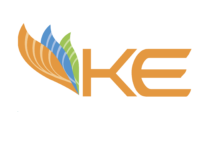IGI Life Insurance, one of the subsidiary companies of IGI Holdings has decided to become part of a growing ‘active’ insurance model, by collaborating with US-based Vitality Group.
“This is first of kind active life insurance which provides weekly, monthly and yearly rewards which includes mobile top-up, food voucher and etc. just for staying active and healthy. Management believes that this will improve client retention significantly.” wrote Syed Noman Ahmed, a research analyst at Insight Securities, a securities brokerage firm, in a note issued to clients on December 20.
The company raised the capital required to launch this project through a Rs1 billion issue of warrants in August 2019. A warrant is a derivative that gives its bearer the right, but not the obligation, to buy shares at a specified price within a specified period of time.
IGI Life is planning to sell the product through its network of 22 sales branches across Pakistan, and around 200 direct & 400 indirect staff members. The company has also set-up an in-house training institute for to sell the above products.
The Vitality Group, headquartered in Chicago in the United States and founded in 2005, has a presence in 19 countries. International partners include Generali in Europe, SoftBank & Sumitomo Life in Japan, Ping An Insurance in China, AIA Group in Asia and Australia, Manulife in Canada, and John Hancock Financial in the United States.
Vitality, and its partners, pioneered something called ‘Shared Value Insurance’. What this means is that it is in the interest of insurance companies to make sure their clients are healthier, and to do that the insurance companies themselves will change the behaviour patterns of their clients. They do this in order to promote a ‘healthier society’.
But the way that these insurance companies go about it, may create concerns around issues of privacy.
For one this model relies on data tracking. “Every single minute this platform tracks roughly a 1,000 activities and picks up about 50 biometric readings,” according to IGI Holdings corporate briefing.
Vitality, for its part, appears to largely ignore concerns around data collection and privacy. One Harvard Business Review article, “Can Insurance Companies Incentivize Their Customers to Be Healthier?”, (promoted on Vitality’s website), reads: “What makes prevention today different from past efforts is how it can be done. First, a wide range of new technologies and data analytics allow tracking who and what is changing, making it possible to establish individualized targets, remedies, and incentives.”
That same article also suggests that because of these methods: “Vitality members generate up to 30% lower hospitalization costs and live from 13 to 21 years longer than the rest of the insured population.”
Vitaliy is an early adopter of technology. It has more than 150 patents and even has a rewards program with Apple Watch. This aligns well with its stated goal of “the integration of wearable and mobile technologies into wellness programs”.
This kind of ‘fitbit insurance’ is tried and tested in developed countries with higher adoption rates of technology across the population, but not so much in places like Pakistan. IGI Life’s bet on a tech-based rewards system working perhaps signals how it views its changing client base, and whether that base is ready to adopt this kind of behavioural monitoring.
There is still great potential in the insurance business in Pakistan, with the country’s insurance penetration rates being significantly lower than those of other countries. Insurance premiums in Pakistan constituted only about 0.89% of the total size of the economy, as compared to an average of 2.24% in the region as a whole.
Yet over the last decade, the insurance industry in Pakistan has grown relatively rapidly, largely as the result of the efforts of the private sector life insurance companies, which have sought to break the near-monopoly enjoyed by the state-owned State Life Insurance Corporation of Pakistan.
That rapid growth, in turn, has led to stiff competition between companies as each seeks to differentiate itself from its competitors, whether it be through making it easier to shop for insurance and getting a quote online, to paying premiums with the convenience of an online payment, etc.
IGI Life appears to be the first to be seeking to take advantage of the relatively recent trend among upper middle class Pakistani consumers of fitness gadgets and apps, which has been combined with an expansion in the number of gyms across major cities in the country as well as an increased awareness of healthy eating habits.
Yet it is unclear how many Pakistanis might be willing to share such intimate details of their life as their health information, along with other markers such as where they might be at any given moment in time, with their insurance company, all for rewards such as mobile credit and coupons for restaurants.
While the conversation in Pakistan around data privacy has not really taken off yet, it may also be because no company has tried to collect any more data than it needs to for its basic business operations. The IGI Life experiment may yield useful information about attitudes among the relatively affluent, better educated portions of the Pakistani population: are they willing to exchange their private data for monetary gain?
While analysts certainly seem intrigued by the innovation introduced into the Pakistani market by IGI Life, and sound optimistic that it will help the company gain market share with consumers of financial services, there is still reason to be sceptical that such a collaboration will yield anything more than just a little bit of buzz around the gimmick, and nothing more.






















Why not also partner up with some gym
Because there’s no readymade product that has that. All they’ve done is imported a foreign product and stuck their label on it.
In Pakistan insurance penetration rates are among the lowest in the world because no one trusts insurance companies to pay out their claims. They need to work on building that trust first.
spotted: a disgruntled employee…
They have solid gym partnerships in place, dont know how much you know but I am availing rewards out of my workouts
Comments are closed.